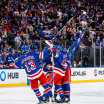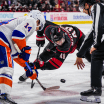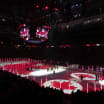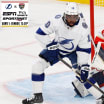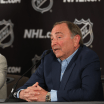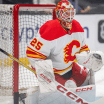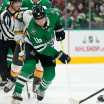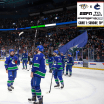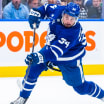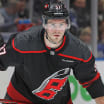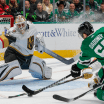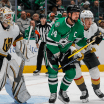VANCOUVER -- Calling it evolutionary and saying it takes advantage of the technology available, the NHL on Thursday announced enhancements to video review and the coach's challenge that will go into effect next season.
NHL announces rule changes for video review, coach's challenge
Commissioner Bettman says enhancements are 'logical next step that we think we can implement'
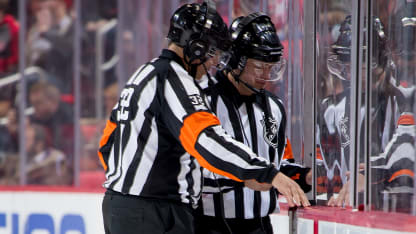
© Dave Reginek/Getty Images
The rule changes were approved by NHL general managers at their meeting Thursday after gaining approval from the Board of Governors in Las Vegas on Wednesday and the NHL-NHL Players' Association Competition Committee in Toronto on June 11.
"The increased use of video replay is something that we've considered and discussed over time, and at this point in time, we think it was the appropriate response to what we were seeing coupled with what we believe is our ability to do it," NHL Commissioner Gary Bettman said. "Every time you decide you are going to increase the use of technology of video there are, and the managers will tell you we've said this repeatedly, unintended consequences. We think the things that we're covering are a logical next step that we think we can implement."
There will be multiple changes to the coach's challenge, most notably adding a third category to allow coaches to challenge missed stoppages of play in the offensive zone that lead to goals. They already were permitted to challenge for goalie interference and offside.
Under the new category, coaches will be able to challenge plays that may involve pucks that hit off the protective spectator netting, pucks that are illegally high-sticked to a teammate in the offensive zone, pucks that have gone out of play but are subsequently touched in the offensive zone, and hand passes.
The time between when the event that should have resulted in a stoppage happened and when the goal was scored does not matter as long as the puck stays in the attacking zone.
"We're not talking about discretionary calls, we're not talking about missed penalties," NHL Deputy Commissioner Bill Daly said. "It's really just black-and-white calls that video can conclusively determine that there was a missed stoppage and it resulted in a goal."
Coach's challenges no longer will be limited based on the availability of a timeout, but a minor penalty for delay of game will be assessed for any failed challenge under any of the three categories. Any subsequent failed challenge will result in a double minor for delay of game.
Under the old rules, a minor penalty for delay of game was assessed only for a failed challenge for offside.
The Situation Room in Toronto will continue to be responsible for initiating video review in the final minute of regulation and in overtime. It will also continue to have final authority over all coach's challenge video review decisions.
"The theory there is we don't want lots and lots of challenges," Commissioner Bettman said. "We don't want to disrupt the flow of the game. We only want challenges where it's crystal clear that an egregious mistake has been made. If it's, 'Well, maybe it could be, maybe it shouldn't,' then there shouldn't be a challenge. I think the coaches and video coaches will adapt to that."
Commissioner Bettman said the NHL was not prepared to allow coaches to challenge for missed penalties.
"We don't think in terms of the game right now and the flow that would do anything other than be terribly disruptive and not particularly productive," Commissioner Bettman said. "We think by evolving with what we're doing we can continue to look at how the game is being played, how the officials are doing, and how the technology with video enhancements are working to help."
The NHL will also begin allowing the on-ice referees to review their own work on major penalties (non-fighting majors), match penalties and double minors for high sticking.
For major and match penalties, the referee who made the call will be required to review it using the monitor or tablet at the scorer's table. He will have the discretion to either confirm his call or reduce it to a minor penalty. He will not be able to rescind the penalty call altogether.
For double-minor high-sticking penalties, the referee making the call will have the discretion to review it at the scorer's table. If upon review it shows that the offending stick was not from the player being penalized, the referee will be able to rescind the call.
Commissioner Bettman said there were four incidents of "friendly fire" double-minor high-sticking penalties this season, including the Stanley Cup Playoffs.
"The primary intention there obviously is the friendly fire-type offenses where perhaps a player's own stick or his teammate's stick causes the injury to the head," Deputy Commissioner Daly said.
In both cases, the referee will be allowed to consult with the other officials on the ice, but he will not be allowed to consult with the Situation Room.
"With respect to the major and the match among other things there is a concern that we may through either hockey ops or player safety have to be reviewing it for other things and we don't want conflicting decisions," Commissioner Bettman said. "With respect to the four-minute (penalty), what we're really looking at is did they get the call right. These are things that are easier for them to self-evaluate."
The NHL
released a complete rundown of approved rule changes
.
